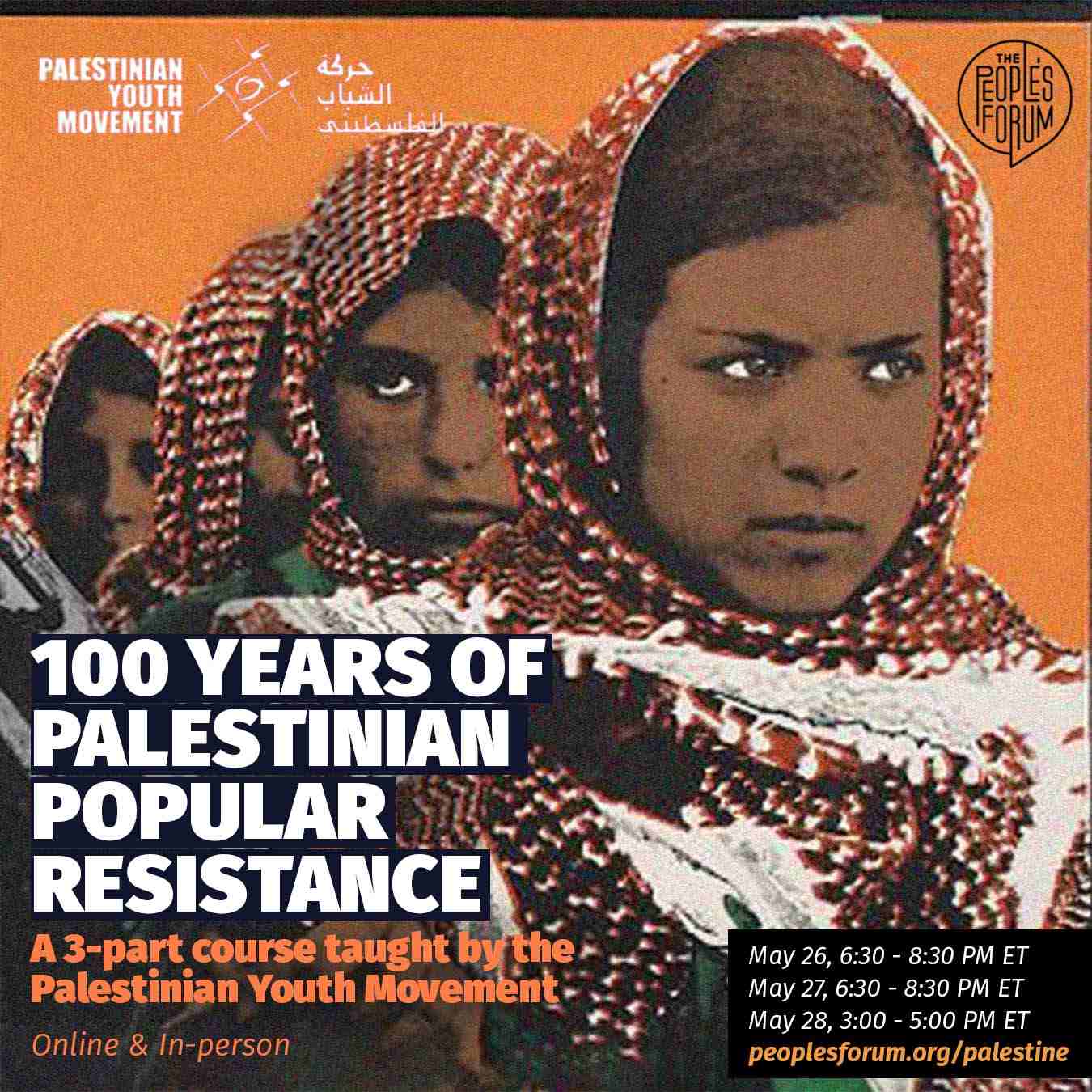Denying Palestine’s Existence as a Way of Denying Palestine is Fundamentally Wrong.
The Ottoman Empire suffered the heaviest losses among the combatant nations in World War I, with significant casualties among Arabs as well, who found themselves under British occupation.
Before the war, some forward-thinking Palestinians had already begun to see Zionism as a looming threat. But the Balfour Declaration introduced a new and terrifying dimension. Using diplomatic language that was both gentle and deceptive, it ambiguously approved the establishment of a Jewish national home in Palestine—effectively committing Britain to supporting Theodor Herzl’s vision of a Jewish state, sovereignty, and complete control over Palestine.
By the time World War I erupted, Palestinian political identity had already begun to shift, mirroring broader global changes and the transformation of the Ottoman state. However, this identity evolved within the framework of a dynastic, multi-ethnic empire with religious legitimacy, making the change relatively gradual. Before 1914, most Ottoman subjects still had a limited mental map of political alternatives; having lived under this system for so long, it was difficult for them to imagine a world where they were not under Ottoman rule.
But as Palestine entered the post-war world, Palestinians found themselves in a state of collective trauma, facing a stark new reality: they would now be ruled by the British, and their homeland had been promised to another people as a national home. At the same time, they clung to British assurances of Arab independence and self-determination, first promised to Sharif Hussein in 1916 and later reaffirmed multiple times, including in the 1918 Anglo-French Declaration and the 1919 Covenant of the League of Nations.
The systematic denial of a distinct Palestinian identity aligned with Herzl’s colonial argument that Zionism would bring benefits to the local population. This played a crucial role in how the Balfour Declaration and subsequent policies erased Palestinian national rights and consciousness.
The Mandate System and the Legal Erasure of Palestine
In 1922, the League of Nations issued the Mandate for Palestine, formally granting Britain control over the country. As a special gift to the Zionist movement, the mandate not only incorporated the exact wording of the Balfour Declaration but also greatly expanded its commitments.
The document referenced Article 22 of the League of Nations Covenant, which stated: “Certain communities… can be temporarily recognized as independent nations.” However, immediately afterward, the mandate reaffirmed international commitment to the Balfour Declaration. The sequence was significant—it made clear that in Palestine, only one nation’s national rights were recognized: the Jewish people. This was in stark contrast to other mandates in the Middle East, where Article 22 applied to all residents, ultimately leading to some form of independence.
The preamble to the Mandate contained another crucial omission: only the Jewish people—and no other group—were described as having a historic connection to Palestine. In the eyes of the drafters, Palestine’s entire architectural and cultural landscape over the past two thousand years—villages, tombs, castles, mosques, churches, and landmarks from the Ottoman, Mamluk, Ayyubid, Crusader, Abbasid, Umayyad, Byzantine, and even earlier periods—belonged to no particular people, or at most, to undefined religious communities.
Yes, there were people in Palestine, but they were given no history or collective presence—so they could be disregarded. Israeli sociologist Baruch Kimmerling described this as “politicide”—and its origins were already evident in the wording of the mandate itself. The most effective way to strip a people of their rights to their land is to erase their historical connection to it.
To fully grasp how destructive the mandate was to the Palestinians, one must look back at Article 22 of the League of Nations Covenant and a secret memo Lord Balfour wrote in September 1919. The covenant provisionally recognized former Ottoman territories as independent nations. In the Middle Eastern context, this clause was tied to British wartime promises of Arab independence in exchange for support against the Ottomans, as well as Wilson’s principle of national self-determination.
Ultimately, every other mandate in the Middle East gained independence, despite British and French efforts to manipulate the system and maintain control as long as possible.
Only Palestinians were denied this process. Meanwhile, Palestine’s Jewish population was granted representative institutions and autonomous governance, benefiting uniquely from Article 22. For decades, British officials insisted—hypocritically but adamantly—that Palestine was excluded from wartime Arab independence promises. Yet, when excerpts from the 1916 Hussein-McMahon correspondence were finally declassified in 1938, the British government was forced to admit that its wording was at least ambiguous.
In 1929, Issa Issa gave a chilling warning: Palestinians are watching themselves become strangers in their own homeland.
The Palestinian Revolt and Its Aftermath
Despite their sacrifices—measured in thousands of Palestinians killed, injured, imprisoned, or exiled—the 1936-1939 Palestinian Revolt ended with nearly entirely negative consequences for the Palestinian people. Britain’s brutal repression, the deaths and exile of key leaders, and internal divisions left the Palestinians weakened and disoriented. By the time the revolt was crushed in the summer of 1939, their economy was in ruins, and they were in no position to resist the rapidly expanding Zionist movement.
While Palestinians were weakened, Zionism grew stronger during the uprising, securing British support, weapons, and military training—resources it would later use to crush Palestinian resistance.
With massive financial backing, intensive lobbying, effective propaganda, complex legal maneuvers, and both overt and covert military operations, Zionist forces exploited Palestinian vulnerabilities. Their paramilitary forces, once semi-secret, were later allowed by the British to operate openly as part of their suppression of the Arab revolt. By this time, Zionist institutions were deeply embedded within the British Mandate administration.
Historians agree: this collaboration, sanctioned by the League of Nations, severely undermined Palestinian aspirations for self-determination, representative governance, and independence—rights that Palestinians firmly believed were theirs.
Meanwhile, weak and British-controlled Arab regimes provided Palestinians with no real support.
The UN Partition and the Nakba
By 1947, Zionist groups had successfully mobilized U.S. politicians and public opinion to support their cause. This was the result of both long-term PR efforts and the post-Holocaust climate, where global fear and sympathy for Jews eclipsed Palestinian and Arab perspectives. With President Truman’s endorsement of a Jewish state on majority-Arab land, a British-backed colonial project now became part of rising American hegemony in the Middle East.
On November 29, 1947, the United Nations passed Resolution 181, with both the Soviet Union and the United States voting in favor. The resolution effectively divided Palestine into a large Jewish area and a much smaller Palestinian section. It served as Israel’s birth certificate, while simultaneously declaring war on the Palestinians, laying the groundwork for their mass displacement.
By April and May of 1948, well before Israel’s official declaration of independence, ethnic cleansing was already underway.
The D Plan aimed to conquer and expel Palestinians from major Arab population centers: Jaffa, Haifa, Arab neighborhoods of West Jerusalem, and dozens of other towns and villages, including Tiberias (April 18), Haifa (April 23), Safed (May 10), and Beisan (May 11).
After May 15, 1948, came the second stage of catastrophe. The new Israeli military defeated Arab forces, massacred more Palestinian civilians, and expelled an additional 400,000 Palestinians, who fled to Jordan, Syria, Lebanon, the West Bank, and Gaza.
Not one of them was allowed to return. Their homes and villages were destroyed, ensuring permanent displacement. Many more were forced out after the 1949 armistice.
For Palestinians, the Nakba is an ongoing process—a trauma that has shaped their identity for generations, scattering families across borders, and turning their homeland into a battleground for power, erasure, and survival.
借由否认巴勒斯坦存在的方式否认巴勒斯坦是错误的。
奥斯曼帝国总体上在一战作战国中损失是最严重的,阿拉伯人的伤亡也相对较高被英国占领。
如果说在第一次世界大战之前,许多有先见之明的巴勒斯坦人已经开始将犹太复国主义运动视为一种威胁,那么贝尔福宣言则是引入了一个新的恐怖元素。宣言用柔和、具有欺骗性的外交语言,用模凌两可的措辞批准“在巴勒斯坦建立犹太人的民族国家”,实际上是英国承诺支持西奥多-赫茨尔的犹太建国、主权与控制整个巴勒斯坦的移民目标。
在一战爆发之前,巴勒斯坦的政治认同肯定已经发生了变化,这与全球的变化和奥斯曼国家的演变保持一致。然而,这种认同感的变化在王朝性质、多民族、具有宗教正当性的帝国的框架内发生的,是相对缓慢的。在一九一四年之前,大多数臣民心中的精神地图都是很有限的,因为他们长期受这种政治制度的统治,他们很难想象自己不是生活在奥斯曼帝国的统治之下的样子。在进入一战后的世界时,巴勒斯坦人正经受着集体创伤,面临着一个全新的现实:他们将被英国统治,而他们的国家已被许诺给他人作为【民族家园】。与此相对应的是,他们对英国人在一九一六年向谢里夫胡赛因许诺的阿拉伯独立和自决的可能性的期望——这一许诺在此后又多次公开确认,包括在一九一八年的英法宣言中的许诺,然后在一九一九年新的国际联盟公约中得到体现。
否认真实、独立的巴勒斯坦认同,与赫兹尔关于所谓犹太复国主义会给当地居民带来的好处的殖民主义观点不谋而合,这是贝尔福宣言及其后续文件抹杀巴勒斯坦人的民族权利和民族意识的一个关键因素。
一九二二年,新的国际联盟颁布了【巴勒斯坦托管委任状】,正式确定英国对该国的统治。作为给犹太复国主义运动的一份特殊礼物,托管委任状不仅逐字纳入贝尔福宣言的文字内容,而且还大大扩展了宣言的承诺。该文件首先提到国际联盟公约的第二十二条,该条规定:【特定的社群……其作为独立国家的存在可以得到暂时承认。】接着,该文件作出维护贝尔福宣言条款的国际承诺。这个顺序的明确含义是,在巴勒斯坦,只有一个民族的民族权利得到承认,即犹太民族。这与每一个其他中东托管统治区不同,在这些地方,盟约第二十二条适用于全体居民,最终是为了让这些国家获得某种形式的独立。
在委任统治的序言部分第三段中,犹太民族,而且只有犹太民族被描述为与巴勒斯坦有历史性的连结。在起草者的眼中,巴勒斯坦整整两千多年的建筑环境,包括村庄、陵墓、城堡、清真寺、教堂,以及奥斯曼王朝、马穆鲁克王朝、阿尤布王朝、十字军、阿拔斯王朝、欧麦亚王朝、拜占庭的与更早时期的地标建筑物,都根本不属于任何民族,或者只属于无定形的宗教团体。那里当然有人,但他们没有历史或集体存在,因此可以被忽略。以色列社会学家巴鲁克·基默林所说的对巴勒斯坦人民的政治杀害的根源,就在托管统治的序言中得到了充分展示。剥夺一个民族对其土地的权利的最可靠办法,就是否认他们与土地的历史连结。
为了充分了解委任统治对巴勒斯坦人的特别破坏力,值得回过头来看看国际联盟公约第二十二条,看看贝尔福勋爵在一九一九年九月写的一份机密备忘录。对于以前属于奥斯曼帝国的地区,第二十一条(暂时)承认它们(作为独立国家存在)。这一条款的内容与中东地区有关的背景环境,涉及到英国在一次大战期间曾多承诺奥斯曼帝国领土上的所有阿拉伯人独立,好换取他们支持英国人,以及牵扯到威尔逊宣布的民族自决原则。事实上,中东的所有其他托管统治区最终都赢得独立(尽管英国和法国这两个托管统治国都扭曲规则,以便在尽可能长的时间内保持最大程度的控制)。
只有巴勒斯坦人被剥夺这些优势,而巴勒斯坦的犹太人则获得代议制机构和自治的进展,他们从盟约第二十二条中得到独有的好处。几十年来,英国官员虚伪而坚定地坚持巴勒斯坦排除在阿拉伯独立的战时承诺之外。然而,当一九三八年胡赛因-麦克马洪通信的相关内容摘录首次被披露时,英国政府菜被迫承认,它所使用的语言至少是模凌两可的。
正如伊萨·伊萨在一九二九年发出的可怕警告,巴勒斯坦人现在眼睁睁看着自己在自己家园中不可避免地变成了陌生人。
尽管付出了牺牲(从大量巴勒斯坦人被杀、受伤、入狱或流放可以看出),而且取得了短暂的成功,但是这场起义对巴勒斯坦人的后果几乎完全是负面的。英国的野蛮镇压、众多领导人的死亡和流放,以及他们内部的冲突,使巴勒斯坦人四分五裂,没有方向,到一九三九年夏天起义最终被镇压下去时,他们的经济已经被削弱。这使得巴勒斯坦人处于非常弱势的地位,无法对抗现在正在焕发出勃勃生机的犹太复国主义运动,该运动在巴勒斯坦起义期间不断壮大,并从英国人那里获取大量的武器和广泛的训练,来帮助英国人镇压起义。
在犹太复国主义组织的大量资本投资、艰苦的劳力、复杂完善的法律手段、密集的游说、有效的宣传,以及隐蔽和公开的军事手段下,巴勒斯坦人最初所处的巨大劣势变得更加复杂了。犹太殖民者的武装力量一直是半秘密发展的,后来英国人则允许犹太复国主义运动在阿拉伯人的反抗中公开运作军事编队。此时,犹太机构与托管统治当局的勾结已经达到了顶峰。客观的历史学家一致认为,这种得到国际联盟支持的勾结,严重破坏了巴勒斯坦人争取代议制、自决和独立的斗争取得成功的任何可能性,而巴勒斯坦人认为这些都是他们的权利。
受英国政府牵制的软弱的其他阿拉伯民族国家/政权无法给巴勒斯坦提供有效的帮助
不久,犹太复国主义运动就动员许多美国政治家和大部分公众舆论围绕这一目标展开。这既是该运动不断进行有效的公关努力的结果,也是巴勒斯坦人和新兴的阿拉伯国家所无法比拟的,更是人们对纳粹在大屠杀中毁灭了大部分欧洲犹太人,而普遍感到恐惧的结果。杜鲁门总统在战后认可未来要在阿拉伯人占人口多数的土地上,建立犹太国家的目标后,犹太复国主义这个曾经被衰落的大英帝国支持的殖民计划,如今成了新兴的美国在中东霸权的一部分。
一九四七年十一月二十九日,联合国同意了第一八一号决议,其中苏联和美国都投了赞成票,该决议即将巴勒斯坦分成一大块犹太区和一小块巴勒斯坦地区。这无疑给以色列递向了出生证明,也是向巴勒斯坦宣战,为后来本该是多数居民的巴勒斯坦阿拉伯人被不断驱逐埋下了伏笔。
D计划包括在四月和五月的上半月征服和驱逐两个最大的阿拉伯人的城市中心——雅法和海法,以及西耶路撒冷的阿拉伯居民区,还有几十个阿拉伯城市、城镇和村庄,包括四月十八日的太巴列、四月二十三日的海法、五月十日的萨法德和五月十一日的比桑。因此,早在一九四八年五月十五日以色列国宣布成立之前,对巴勒斯坦的种族清洗就已经开始了。
在五月十五日之后,是大灾难的第二阶段,新以色列军队击败了参战的阿拉伯国家军队。…….巴勒斯坦人遭受进一步针对平民的屠杀后,有更多的巴勒斯坦人,也就是另外的四十万人被驱逐和逃离了家园,他们逃到邻国约旦、叙利亚、黎巴嫩、西岸和加沙。没有一个人被允许返回,他们的大部分家园和村庄遭到摧毁,来阻止他们返家。更多的人甚至在一九四九年停战协定签署后被驱逐出新的以色列国,而自那时以来,还有更多的人被迫离开。在这个意义上,大灾难可以理解为一个持续的过程。
在一九四八年流离失所的人中,有我的祖父母,他们不得不离开位于塔尔里什、我父亲和他的大多数兄弟姐妹出生的家。起初,现年八十五岁、身体孱弱的祖父顽固地拒绝离家。在他的儿子带着全家大部分人到耶路撒冷和纳布卢斯避难后,他独自一人在那里待了几个星期。由于担心他的安全,一位来自雅法的亲友在战斗暂停时冒险到他家找他。我祖父不情愿地离开了,哀叹着无法将他的书带走。祖父和他的孩子们都没有再见到他们的家。祖父母的大石头房子的废墟仍被遗弃在特拉维夫的郊外。
对所有巴勒斯坦人来说,无论他们的处境如何,大灾难都是一个持久的身份认同的试金石,这种认同已经历经了好几代人。大灾难标志着一次爆发出的集体混乱,每个巴勒斯坦人都以这样或那样的方式,或透过他们的父母或祖父母感受到了这一创伤。在大灾难为他们的集体身份认同提供一个新的焦点的同时,大灾难也拆散了家庭和社区,把巴勒斯坦人分割和驱散到许多国家和不同的主权实体中。
约旦压制巴勒斯坦
尽管巴勒斯坦人的实力明显弱小,但是,被一九四八年的胜利者从历史中抹去,被阿拉伯各国政府基本无视或压制,被超级大国的全球野心牺牲的离散、被打败的巴勒斯坦人,却一再设法打破对他们如此不利的地区现状。在一九五六年的加沙和其他地方,这样做的后果是严重的。在下一轮的抵抗中,其后果将更加严重。
Georges duby:我试图审视一个事件是怎样被制造出来和不被制造出来的,这是因为,事件归根结底只是透过人们对它的说法而存在,我们可以说,事件的存在是由它的传播者所编织的。
如果说贝尔福宣言和托管统治是西方大国对巴勒斯坦人民的第一次宣战,一九四七年联合国关于巴勒斯坦分治的决议是第二次宣战,那么一九六七年战争的后果则是对巴勒斯坦人民的第三次宣战。它以联合国安理会第二四二号决议的形式出现,该决议由美国制定,于一九六七年十一月二十二日获得批准。
在美国的帮助下,以色列大摇大摆地穿过这个措辞漏洞,这使得它能够殖民统治被占领的巴勒斯坦和叙利亚领土,其中一些领土,例如东耶路撒冷和戈兰高地被它正式吞并,并保持对它们无休止的军事控制。联合国一再谴责这些举动,却没有祭出一丁点的制裁或对以色列施加任何真正的压力,随着时间推移,这相当于国际社会默许了这些举动。
由于第二四二号决议遗漏了巴勒斯坦人,因此固着了以色列否认论述中的一个关键因素:因为没有巴勒斯坦人,唯一真正的问题是阿拉伯国家拒绝承认以色列,并且挥舞着一个幽灵般的【巴勒斯坦问题】来当作拒绝承认以色列的借口。在犹太复国主义自一八九七年以来一直主导的关于巴勒斯坦的争论中,第二四二号决议使这一精彩的捏造得到了证实,给予流离失所和土地被占领的巴勒斯坦人沉重的打击。仅仅两年后,即一九六九年时,以色列总理梅厄夫人著名地宣称:“不存在所谓的巴勒斯坦人——他们不存在”,而且他们从未存在过。因此,它将否认定居者-殖民计划一事提升到了最高的境界:这里存在有本地居民只不过是个谎言。



